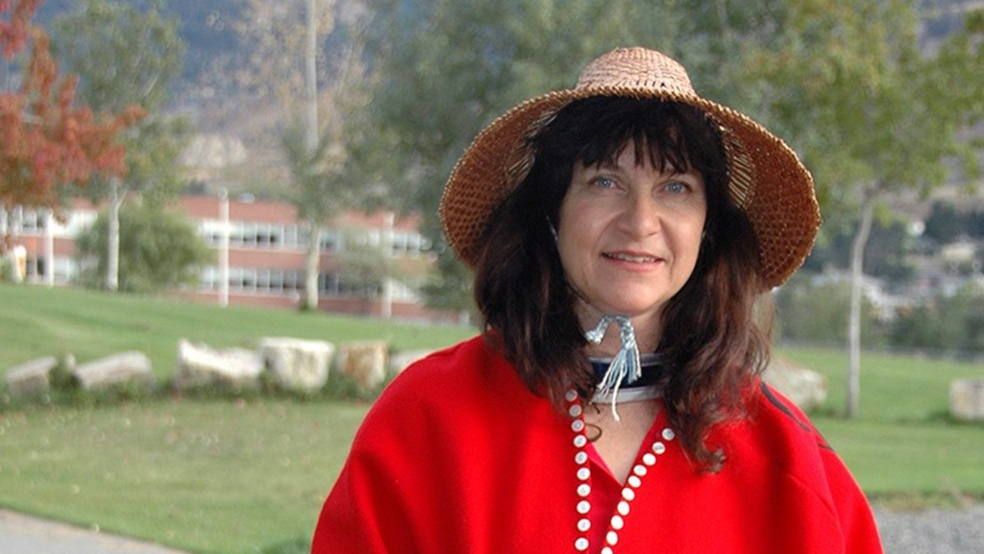First Nations communities across B.C. are working to protect their Elders, essential keepers of knowledge and language, from a pandemic that particularly endangers older community members.
“They are the precious people that we have in our First Nations and Indigenous communities who have knowledge about the past, about our customs, our ways of life, our history, our language,” said Marianne Ignace, a member of the Skeetchestn Band community and professor of linguistics and First Nations studies at Simon Fraser University.
“We value and treasure them as the ones who provide the link to the past, to the traditions, to wisdom that guides us in how to deal with contemporary issues of living, including now.”
Work with Elders to document, preserve and revitalize Indigenous languages and knowledge is being put on hold across the province in order to protect the health of these knowledge keepers.
Ignace meets every couple of weeks with a group of Skeetchestn Elders to document stories, places, botanical knowledge and memories of land and landscape that must remain a part of the community’s collective memory.
The work is essential and timely, but the risk of potential transmission and infection of an Elder far outweighs a delay in the endeavour.
Another Elder Ignace works with, among the last living speakers of a Haida dialect, is in a long-term care facility in Vancouver. Given recent outbreaks and bans on visitors to prevent more COVID-19 cases in such facilities, Ignace is no longer able to visit him to continue their project.
“Our Elders are the last generation of individuals in the community who were raised with the language,” said Ignace. “The whole community and nation, we’re acutely aware they are in that fragile population who can most easily be affected by this COVID-19 pandemic.”
“And it certainly teaches us how keeping a lifeline to our languages is even more so hanging by a thread right now.”
Elders have been at the forefront in encouraging social distancing measures and hand washing in the community.
Ignace’s husband, Chief Ron Ignace and council implemented an emergency response plan in the Skeetchestn community about 60 kilometres west of Kamloops, before provincial states of emergency were enacted.
The leadership of Elders in the effort to prevent the spread of the virus is born out of trauma. Although a generation removed from the 1918 Spanish flu epidemic, Elders hold those stories from their parents in the community’s collective memory.
“Elders know, from what their own parents and grandparents told them, what the devastating consequences can be of these waves of disease,” said Ignace.
It is estimated that about one in three Skeetchestn people died due to the Spanish flu, which took a similar toll in the other 16 bands and nations of the Secwépemc, or Shuswap, people.
During the 1862 to 1863 smallpox epidemic, about two-thirds of Skeetchestn people perished.
Stories of bells constantly ringing from the community’s Catholic church signaling death after death live on in the community’s memory, said Ignace.
Those memories also include the harm health-care providers and government have done in these communities in similar crises, another challenge communities and health authorities are working to overcome.
“It’s very triggering for people emotionally,” said First Nations Health Authority deputy chief medical officer Dr. Shannon McDonald. “Not only are we dealing with mental health challenges and anxiety, we’re dealing with the history of having government agencies give instructions that people don’t understand or trust.”
And with many northern and remote First Nations facing challenges around access to food, clean water and health care in the event of an outbreak, the health authority is on heightened alert to support First Nations and urban Indigenous people in the province.
In the event of a single case, they would respond as if it were an outbreak. “We have to be prepared as if everybody has COVID-19,” said McDonald.
Right now, there are no confirmed cases of the disease in First Nations communities. McDonald said a case or outbreak would not be announced if it were to happen.
“Communities are concerned that if they had an outbreak announced, it would be hard to access resources,” she said, noting that stigma could prevent suppliers and frontline workers from being willing to enter a community. “We don’t want people shamed and blamed for something they have no control over.”
McDonald said it’s culturally important that Elders survive and that individuals remain connected to their communities and cultural comforts.
Ignace sees this community-mindedness already. Many community members are calling Elders regularly, and the Shuswap Tribal Council is sending care packages, including fresh and smoked salmon, to people of all ages.
Elders’ knowledge about past pandemics, she said, “has produced a community resilience, that it’s important to survive and to do the best we can.” ![]()
Read more: Indigenous, Coronavirus

















Tyee Commenting Guidelines
Comments that violate guidelines risk being deleted, and violations may result in a temporary or permanent user ban. Maintain the spirit of good conversation to stay in the discussion.
*Please note The Tyee is not a forum for spreading misinformation about COVID-19, denying its existence or minimizing its risk to public health.
Do:
Do not: